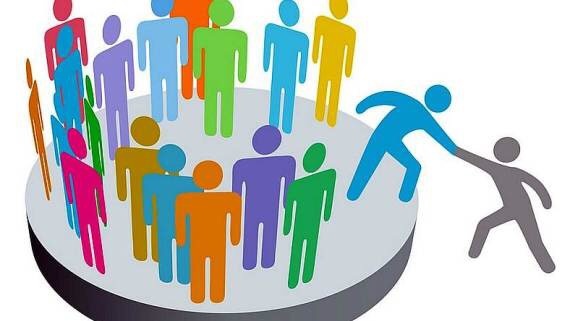
www.quora.com
India’s has a population of more than 1.3 billion peoples. The population consists of descendants of a variety of races starting from the Adivasis and Dravidians to Aryans, Mongols, Semites and many more and uncountable intermixtures of each other. Likewise, nobody quite really knows the real number of languages practiced within India; merely 22 are recognized by the Constitution, Hindi being the official one. India is the birthplace of 4 major religions: Hinduism, Buddhism, Jainism, and Sikhism. Though 80% of the Indian population is Hindu, almost every religion known in the world is practiced here. India has the 3rd largest population of the Islam practitioners though it consists only of 14%. Jawaharlal Nehru, the 1st Prime Minister of India in his book ‘Discovering India’ perfectly summed this up as Unity of Diversity which means a state of oneness in spite of the presence of immense diversity.
Getting out of the nostalgic definition, India is one of the fastest growing developing countries with an ironically high poverty rate. Poverty indeed is the core problem that India face followed by greed and irresponsibility. These three problems are inter-related and in most circumstances, they end up creating a new and unique problem which might roughly be termed as ‘corruption’. Poor people take corrupted steps in hope of becoming rich and rich people indulge in corruption in fear of losing what they already have. It is impossible to get rid of this insecurity complex unless our government literally guarantees everything to everyone which is honestly very absurd. In terms of corruption, more or less every one of us is corrupted, and the politicians and the religious heads have the worst record in it.
The corruption is triggered in India because the laws also come with a handful of flaws which can even be detected with bare eyes. The irresponsibility of Indian citizens simply boosts the spirit of corruption. In India, it is illegal to litter in public places, to walk and talk in phone simultaneously, to spoil national monuments, to indulge in bribery, and there are many more on the list. The problem is that no particular group of people is free to blame so no one is in a position to boycott the corrupt or throw the first stone of accusation and the result is the prevalence of corruption, black marketing, nepotism, or adulteration of food and drink along with many others. All these kind of corruptions are like cancer to blood. We have to get rid of society’s false values before we can transfuse a healthier social consciousness. Therefore, there is a scope of a better India and we should target it even if it seems absurd.
Previously, religion had much control over morality but due to globalization and vast spread corruption, it is reduced to worshipping. In India, the pursuit of religion means the pursuit of peace of mind to a large extent but today the concept of religion is itself falsified in India and its citizens are fighting against each other forming own religious groups. Today, it can be declared that religion does not necessarily make a person a good human being. Yes, it might have saved innumerable people from drug addiction, insecurity complex, nervous breakdowns and it might have a long history of being a heritage of mental strength but there are also the examples of the likes of Gurmeet Ram Rahim, Asaram Bapu and others. The origin of religion lies in the fear of unknown and salvation ways from one’s misdeeds but today, religion is misinterpreted and served. Going with the flow, we are also facing the burns of by-products of religion which ranges from astrology and palmistry to casteism and jihad!
Today, religious censorship in the form of banishment is confined to eating beef for Hindus, eating pork for Muslims, eating garlic, onion, and flesh for Jain and clipping hair or smoking for Khalsa Panths. Sarcastically, religion no more serves as an epitome of love, rather it serves as an epitome of hate.
For example, a Hindu who does not eat meat considers himself a better Hindu than another fellow Hindu who eats meat. On contrary, an Islam practitioner believing in Jihad considers himself a better Muslim than a fellow not so orthodox Muslim. These examples are not exhaustible, there are exceptions but the absolute number of such exception is very less.
On the other hand, atheism, though against any kind of structural religion is turning out to be a new religion itself. An atheist considers himself / herself superior because he / she does not have to rely on something supernatural and often makes fun of ‘faiths’.
As I was saying, when it comes to things that matter most for a nation like India such as murder, rape, bribery, falsifying bank accounts, evading tax, an illicit affair, and incest, people fear policeman’s baton and jail more than religious censorship. The problem with us, Indians is that we have a moral but we don’t follow it but expect others to follow it. It is pitiful that the criminal instincts which religious persuasion kept under control have resurfaced. It is time that we conduct a reappraisal of values and pursuit of religion in India and focus on national integrity which in Swami Vivekananda’s words is:
“For our national welfare, India must gather up of its scattered spiritual forces. India must be a union of those whose hearts beat to the same spiritual tune.”
We Indians spend hours and hours in the devotion of God and handsome amounts of money during rituals. We should have a moral and we should take rational decisions. If we are to do any good to the society and if we want to spread any positive vibe at all then it is better to take part or initiate some kind of social work over which we have a direct control than making some offering in a religious institute.
Social service has never been given the highest priority by any religion in India. Perhaps the only religion which has come up with ‘real’ social service at times of emergency and that also without any kind of discrimination is the Sikh religion through the Gurudwara Charity. It seems that on par with other Indian religions since it is the most recent one, we are still deriving the benefits of religion through it. Otherwise, considering religion as a general case, when it matters most like earthquake, epidemic, drought or flood, we see no other so-called religious groups engage in relief work and setting an example.
To make a conclusion, this structural change is something , would like to implement for uplifting the society as a whole. It should be made very clear to the citizens of India that a country like ours which is left far behind the optimal progress can neither afford people to spend more time on fighting for religious differences nor to let religion / irreligion be people’s opium. We should try to evolve with a concept of a secular work-based religion which does not discriminate Human beings on any ground and focus on collective activities.

Author Bio : Adhiraj Sengupta, M.A. in Economics from Rabindra Bharati University,Kolkata.A participant of International Essay Competition , August,2018


